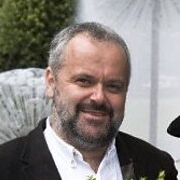Professor Tim Parkin
- Professor Tim Parkin

Professor Tim Parkin is the Elizabeth and James Tatoulis Chair in Classics in the School of Historical And Philosophical Studies.
Biography
Professor Tim Parkin joined the Classics and Archaeology program at the University of Melbourne in 2018 as the inaugural Elizabeth and James Tatoulis Chair in Classics. Before this he had spent over eleven years as Professor of Ancient History at the University of Manchester (UK). He is a New Zealander by birth who was awarded a DPhil at Oxford as a Rhodes Scholar and who, since 1989, has worked in universities in New Zealand, Australia, and the United Kingdom, as well as spending 14 months in Germany as an Alexander von Humboldt research fellow.
Tim’s teaching covers both Greek and Roman history and classical languages. His main research is in ancient history, particularly Roman social, cultural, legal, and demographic history. Among his publications are Demography and Roman Society (1992), Old Age in the Roman World: A Social and Cultural History (2003), Roman Social History: A Sourcebook (2007), and The Oxford Handbook of Childhood and Education in the Classical World (2014). He is currently working on a book on ancient sexual health, in particular sexually transmitted diseases. He is currently also deputy head of the School of Historical and Philosophical Studies, and the Honorary President of the Classical Association of Victoria.
What is the most memorable moment of your academic career?
There have been many but a real highlight for me was being voted University Lecturer of the Year by the Students Association when I was at the University of Canterbury.
What shaped your academic interests?
My teachers – at school and at university.
What book would you recommend to first-year students in your discipline area?
The Roman Revolution by Ronald Syme.
What does Academic Advising mean for you?
Connecting with students, helping them to get the most out of their time at this university and at the same time getting more out of my time here too.
What do you think it means for students? How will it assist them in their UG journey?
It is a flexible system that will mean different things to different students – it might be life-changing or it may simply help them get a little but more out of their time here, perhaps through exploring new opportunities or overcoming particular challenges.
What are some interesting stories from your first Academic Advising meeting?
My group were made up of very different people whim I enjoyed meeting and who I think enjoyed meeting each other. One of the things we talked about were little things that make living in lockdown more tolerable, whether it was buying a takeaway treat at a local café or binge-watching a series on TV (or possibly both).